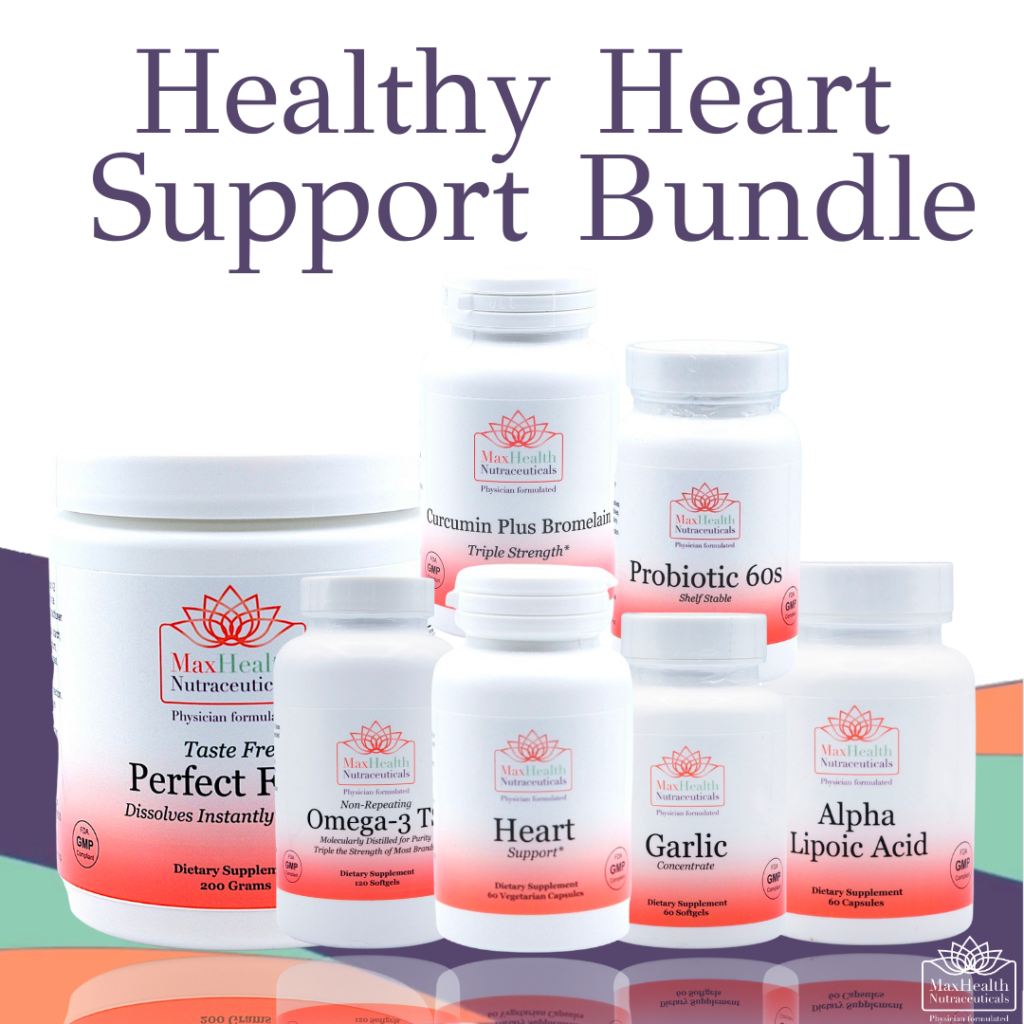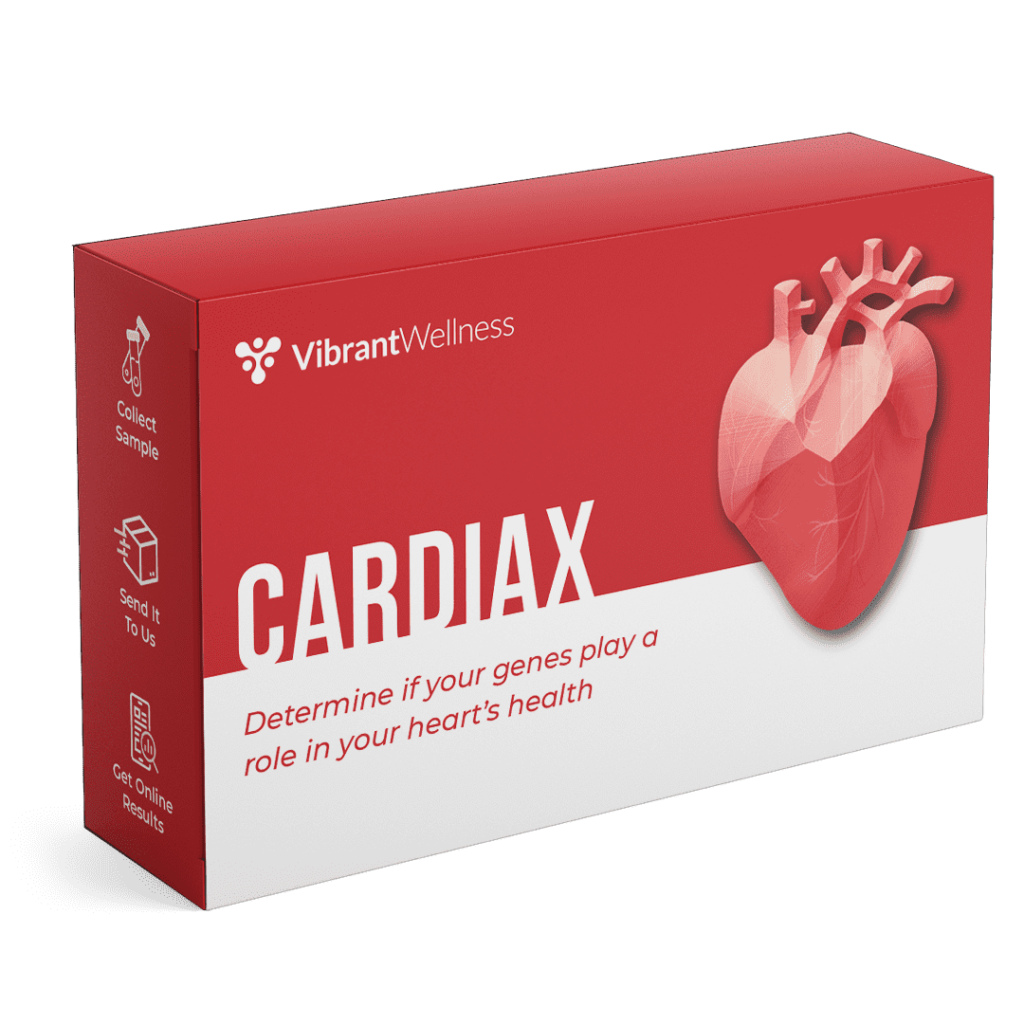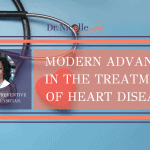
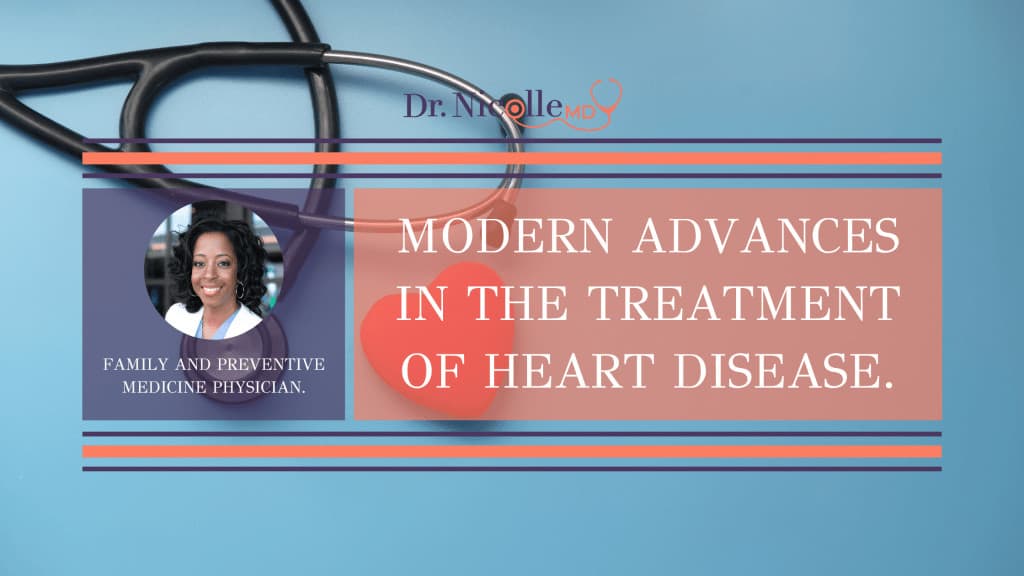
Modern medical knowledge is constantly improving as scientists work to develop a better understanding of the intricate systems at work in our bodies. This includes how our hearts function and the effect heart disease has on our bodies.
As we learn more about the processes that ensure our hearts function properly, heart disease treatments improve. This means the quality of life and longevity for people who have heart disease improves as well.
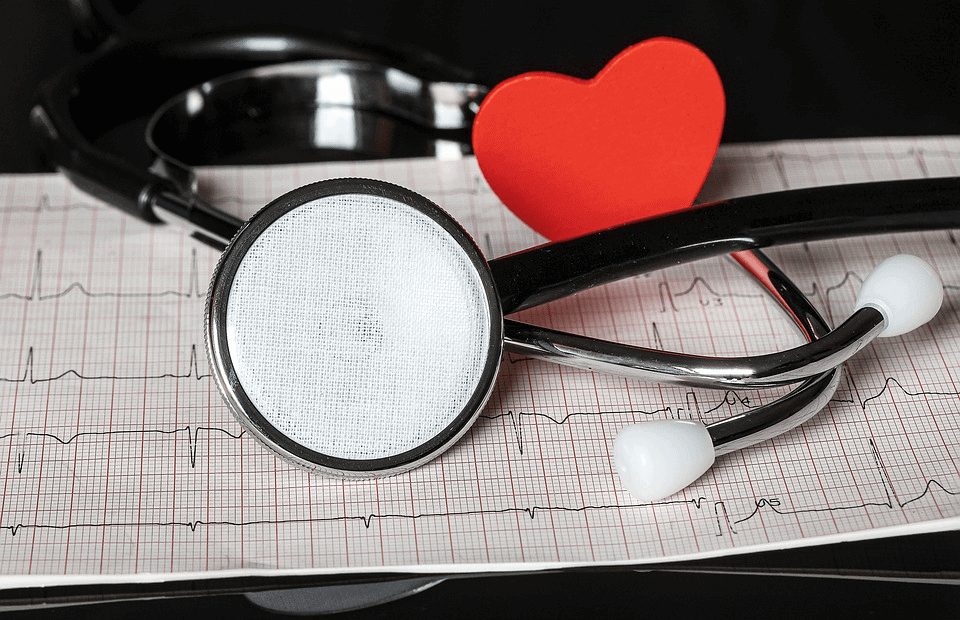
A Better Understanding of Heart Disease
Many of the treatments used to counteract the effects of heart disease today would be impossible without our modern understanding of the heart.
For example, because we know that restricted blood flow is a result of narrowed or blocked arteries, we can use devices like cardiac stents to reopen these arteries. Pacemakers and defibrillators are the results of the improved understanding of electrical physiology of the heart.
New advancements are being made every day, led by institutions like the American Heart Association with thousands of studies all over the world.
Developments in Heart Disease Treatment Methods
As knowledge and understanding of heart disease continue to improve, so do the methods used to diagnose and treat the condition.
Early heart disease treatments were limited to mainly lifestyle changes and some medications. While these methods can be effective for many people and are still used today, they are less effective in severe cases of heart disease.
Now that scientists and researchers better understand the mechanics of heart disease and its complications, they have helped create new and improved heart disease treatment methods. Many of these methods involve the surgical implantation of devices near the heart that help to control its rhythm and support its regular function.
Cardiac Stents
Heart disease leads to plaque buildup in your arteries, which narrows them and prevents regular blood flow. To treat this, cardiologists can insert a cardiac stent inside a blocked artery in a minimally invasive procedure known as coronary stenting.
A cardiac stent is an expandable metal mesh coil that’s small enough to travel through an artery. The stent is inserted with a balloon that expands when it reaches the blocked or narrowed section. The stent expands to keep the artery stretched wide enough for regular blood flow, and the stent stays in place, keeping the artery open after the balloon is deflated.
Coronary angiograms are emergently performed at the time an acute heart attack occurs, and the cardiologist will likely place a cardiac stent even if you have only one or two blocked arteries. Sometimes, there are several coronary arteries that are blocked, which requires more invasive procedures to treat.
Pacemakers
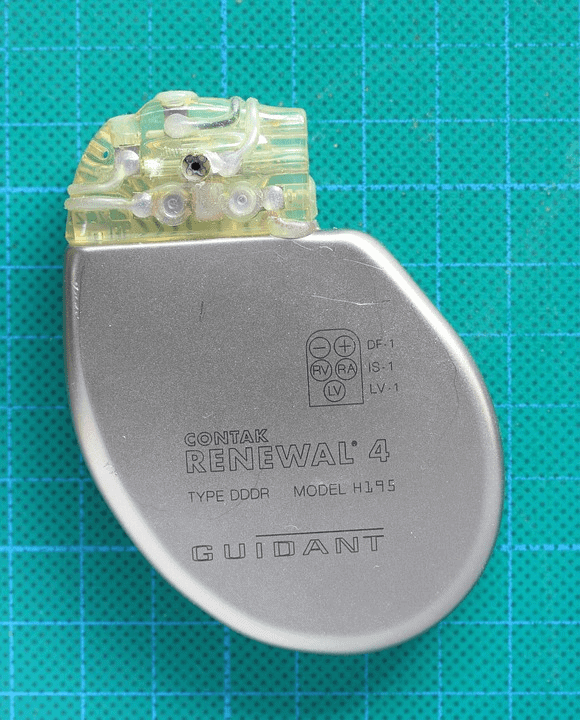
Normally, your heart serves as its own pacemaker. The sinoatrial (SA) node controls the rhythm of your heartbeats with regular electrical pulses that instruct the heart to contract and relax.
Heart disease can interfere with this regular rhythm. You may experience heart rhythm disturbances known as arrhythmias or palpitations, which can speed up or slow down your heartbeats. Any disturbance can interfere with how efficient your heart is at maintaining good circulation throughout your body.
To correct this issue, your doctor may suggest you undergo surgery to have a pacemaker implanted. The pacemaker monitors the rhythm of your heartbeats for irregularities and creates its own electrical impulses that restore the regular rhythm of your heart.
Defibrillators
If you are at a high risk of experiencing cardiac arrest, you may need an implantable cardioverter defibrillator (ICD). During cardiac arrest, your heart stops pumping effectively, and it may stop altogether, suddenly cutting off blood flow completely. This is life-threatening if you cannot get emergency medical treatment right away.
An ICD monitors for irregularities in the heart’s rhythm, specifically in the ventricles. If you experience ventricular arrhythmia, the ICD will deliver small electric signals to restore the heart’s regular rhythm. If this arrhythmia persists, it will deliver a large shock similar to a regular defibrillator to jumpstart the heart’s regular rhythm once again.
Note that sometimes these shocks can be painful, but they can also save your life. Some newer ICDs also serve the same function as pacemakers, stimulating heartbeats when your heart rate becomes too slow.
Food For Thought
While heart disease treatments have come a long way, they are by no means perfect. You may have complications from the surgery needed to implant a pacemaker or defibrillator, and you may have to avoid things that could interfere with these devices, such as metal detectors and MRI machines.
If you would like to receive a free resource sheet to support your quest for better heart health, click the button below to receive your gift.
I’m excited to talk about this topic today because not only do I truly believe that you have the power to reverse heart disease and lower high blood pressure to improve your health, but the science also agrees! You can adopt healthy lifestyle practices that improve your health and enrich your life, which can in turn improve the lives of those close to you. You have the power to break the cycle of these chronic diseases so that you can leave a legacy of health to your loved ones.
As you may already know, I use lifestyle medicine as the first line of treatment, before medications, to treat lifestyle-related chronic diseases. Lifestyle-related chronic diseases include diabetes, hypertension, obesity, and some cancers, just to name a few. Lifestyle practices, such as eating a whole-food plant-based diet and regular physical activity, can help you improve blood pressure and reverse heart disease. In certain cases, these approaches may even outperform pharmaceutical therapy. But I always tell my patients that conventional medications may be appropriate at this time to prevent catastrophic illness, but over time, you can work to make the necessary lifestyle changes to possibly reduce and/or eliminate medications. Please remember to always consult your physician for your particular needs and circumstances prior to making any decisions whatsoever.
Is Dietary Supplementation Right For You?
There is a common saying, “You can’t outrun a bad diet.” This is especially true when it comes to heart health. Diet is sooooo very important… Did you know that your diet could be the key to a healthy heart? It’s true – what you eat (and don’t eat) can have a big impact on your cardiovascular health. So, if you’re looking to keep your heart in tip-top shape, make sure you pay attention to what you put on your plate.
Unfortunately, it can be difficult to eat a healthy diet in this day and age. It is very important to note that we are not eating the same foods we ate years ago because the soils have been depleted of critical nutrients through current industrial farming practices. And because the soil is not as good as it used to be, the food supply (grown from the depleted soil) is not as good as it used to be. For example, you are not getting the same levels of magnesium as you would have gotten 30 or even 50 years ago.
Second, much of the food has been genetically altered, which can impact the inherent and unique nutritional composition that each food possess. For example, ancient einkorn wheat has less gluten, more protein, more Vitamin A, and more beta carotene, than modern genetically modified wheat.
Third, the toxic load in the environment today is much higher than 100 years ago. We can see this with global warming, toxic landfills, polluted oceans and waterways, etc. Toxicity levels interfere with nutrient assimilation and absorption not just into the foods, but into our bodies as well.
For some people, vitamin and mineral supplements offer important health benefits. Supplements are designed to fight deficiencies found in our diet and complement the food we eat regularly. Supplements are basically “helping hands” to our daily food.
If you need extra help in getting the nutrients you need, and/or are unable to eat better, the supplements in my Healthy Heart Bundle may provide the extra boost you need.
These are my favorite Heart Health Supplements to use! This Healthy Heart Bundle will ensure you have the intake of the important vitamins, minerals, and probiotics to decrease inflammation and boost your innate wellness day and night. Taken together, it’s a solid plan for increasing your body’s natural resiliency while you lose weight and improve your heart health, naturally.
For best results make sure you use my heart health supplements with dietary changes including a whole food plant-based diet, regular exercise (at least 2-3x per week), regular sleep (8 hours per night), and intermittent fasting (at least 1-3x per week).
Tools to Improve Heart Health
Blood Pressure Monitoring
It’s very important to monitor your blood pressure. I often recommend an automatic upper arm blood pressure cuff, but a wrist blood pressure monitor is also acceptable.
Weight Monitoring
Since weight management is very important in blood pressure control, I recommend that you be mindful of your weight and its fluctuations, and that you monitor your weight AT LEAST on a weekly basis. I recommend a scale that includes a body composition monitor.
Taking Charge Of Your Heart Health
Heart health is a big topic. It’s in the news, on our minds, and for good reason; heart disease remains the leading cause of death in the U.S. But what if there was something you could do proactively to help protect your heart from future problems? Enter the CardiaX test—a revolutionary new way to take charge of your heart health!
What is CardiaX?
CardiaX is a comprehensive genetic testing panel that looks at mutations associated with common cardiovascular risks. It can be used to determine if there are any genetic factors at play in your heart health, and it can also identify potential areas of risk that may require further action. With this knowledge, you can make informed choices about your health today with the aim of improving long-term heart health outcomes.
Who Might Benefit from CardiaX?
If you have been diagnosed with or are at risk for atherosclerosis, abnormal cholesterol production, hypertension, stroke risk, and risk for heart attack then you may benefit from this test. Additionally, anyone who wants to know more about their genetic predispositions for common cardiovascular risks may also want to consider taking this test as well.
What Can I Do With My Results?
Your results will give you an indication of whether or not there are any potential genetic markers playing a role in your risk for developing certain conditions related to heart health. From there, you can work with your healthcare provider to develop a plan that takes into account these findings and helps you develop strategies for managing them going forward. In addition to lifestyle changes such as diet and exercise modification, selecting medications that are tailored specifically to your genetics could be beneficial as well.
In A Nutshell…
The CardiaX test is an exciting new way to take charge of your heart health by learning more about how genetics might be playing a role in certain cardiovascular risks. With this knowledge in hand, patients can make decisions informed by their own unique genetic profile that will help reduce their overall risk for developing certain conditions associated with heart disease. This type of proactive approach is key when it comes to protecting ourselves against this all-too-common affliction—so don’t wait another minute! Take control of your future and get started with the CardiaX test today!
Remember, healthy lifestyle behaviors–like eating a whole-foods plant-based diet that is low in sodium, being physically active, and stress management are the best ways to prevent and control high blood pressure. Please talk with your doctor about any complementary health approaches, including supplements, you use.
Dr. Nicolle Martin
Some of the links in this article are "affiliate links", a link with a special tracking code. This means if you click on an affiliate link and purchase the item, we will receive an affiliate commission.
The price of the item is the same whether it is an affiliate link or not. Regardless, we only recommend products or services we believe will add value to our readers.
By using the affiliate links, you are helping support our Website, and we genuinely appreciate your support.
Last updated on January 28th, 2022 at 03:21 am

Minimize Medications. Maximize Health.
Are you super busy but need to take control of your health? Are you tired of being tired? Subscribe to my “Minimize Medications, Maximize Health Blog” and I’ll give you 7 Tips to Get Healthy in No Time absolutely FREE.


